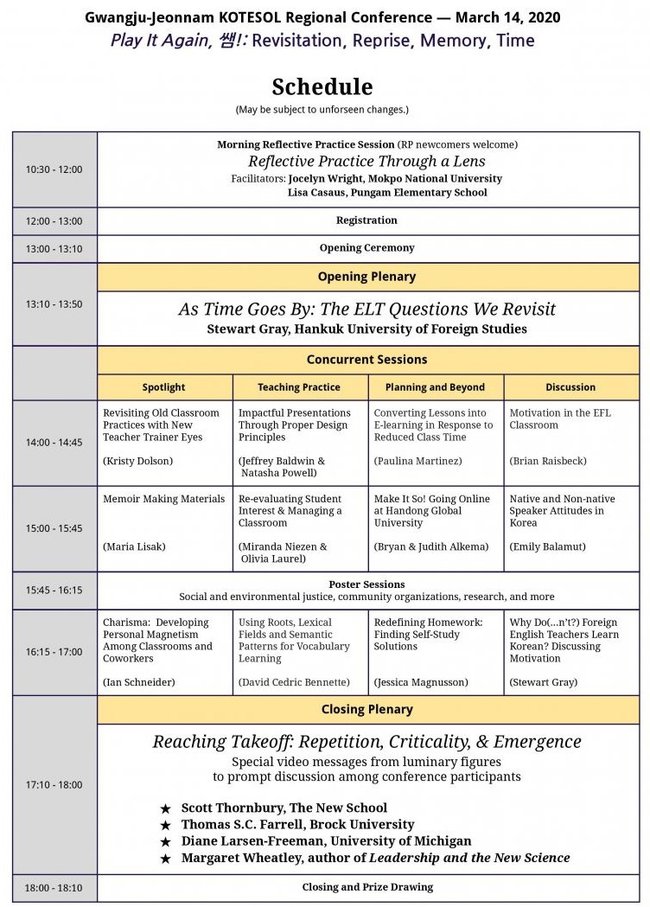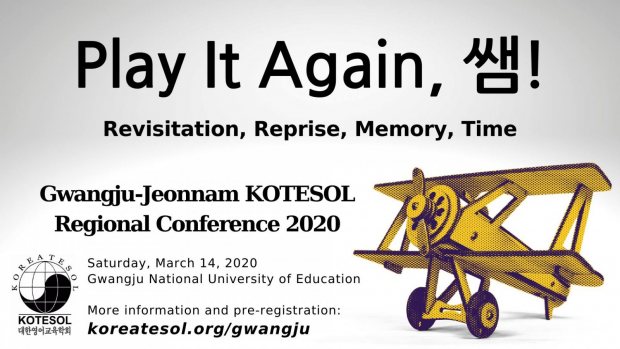
![]()
The Schedule
[ Clicking on title links will take you to the respective abstracts and bios. ]
10:30ㅡ12:00 Reflective Practice Session
Reflective Practice Through a Lens
ㅡ Jocelyn Wright, Mokpo National University
ㅡ Lisa Casaus, Pungam Elementary School
_____________________
13:10ㅡ13:50 OPENING PLENARY SESSION
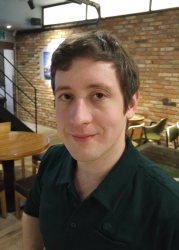
As Time Goes By: The ELT Questions We Revisit
Stewart Gray (Hankuk University of Foreign Studies)
_____________________
SPOTLIGHT Strand
14:00ㅡ14:45
Revisiting Old EFL Classroom Practices with New Teacher Trainer Eyes
ㅡ Kristy Dolson
15:00ㅡ15:45
Memoir Making Materials
ㅡ Maria Lisak
16:15ㅡ17:00
Charisma: Developing Personal Magnetism Among Classrooms and Coworkers
ㅡ Ian Schneider
_____________________
TEACHING PRACTICE Strand
14:00ㅡ14:45
Helping Students Deliver Impactful Presentations Through Proper Design Principles
Jeffrey Baldwin & Natasha Powell
15:00ㅡ15:45
Re-evaluating Student Interest and Managing a Classroom
ㅡ Miranda Niezen & Olivia Laurel
16:15ㅡ17:00
Using Roots, Lexical Fields, and Semantic Patterns for Vocabulary Learning
ㅡ David Cedric Bennette
____________________
PLANNING AND BEYOND Strand
14:00ㅡ14:45
Filling in the Gaps with Technology: Converting Your Lessons into E-learning in Response to Reduced Class Time
ㅡ Paulina Martinez
15:00ㅡ15:45
Make It So! Going Online at Handong Global University
Bryan Alkema & Judith Alkema
16:15ㅡ17:00
Redefining Homework: Finding Self-Study Solutions
ㅡ Jessica Magnusson
____________________
DISCUSSION Strand
14:00ㅡ14:45
Motivation in the EFL Classroom
ㅡ Brian Raisbeck
15:00ㅡ15:45
Native and Non-native Speaker Attitudes in Korea
ㅡ Emily Balamut
16:15ㅡ17:00
Why Do(...n’t?) Foreign English Teachers Learn Korean? A Discussion/Presentation on Motivation
ㅡ Stewart Gray
____________________
17:15ㅡ18:00 CLOSING PLENARY SESSION
Reaching Takeoff: Repitition, Criticality, and Emergence
ㅡ Scott Thornbury, Thomas S.C. Farrell, Diane Larsen-Freeman, Margaret Wheatley
_______________________________________________
[15:45ㅡ16:15] POSTER SESSIONS (Lobby)
A Contrastive Study on Onomatopoeia Between Korean and Uzbek
ㅡ Dilfuza Guzarova
KONA Storybook Center
ㅡ Kim Young-Im & Matkhiya Usmonova
The Good, the Bad, and the Vocab: A Poster Presentation Tryptic
ㅡ Julian Warmington
![]()
Presentation Abstracts & Presenter Biodata
10:30ㅡ12:00 Reflective Practice Session
Reflective Practice Through a Lens
ㅡ Jocelyn Wright, Mokpo National University
ㅡ Lisa Casaus, Pungam Elementary School
Do you want to take more time to reflect on your teaching this year? Have you ever tried using photography to do this? Reflective practice in education aims to examine how we teach and students learn. Reflection, of course, can be done in many different ways. In this interactive workshop, we will focus on photography as an artful modality and suggest that it can reveal some interesting insights.
We will start by presenting a discovery activity to learn about the seven key principles of design (pattern, contrast, emphasis, balance, proportion, harmony, and rhythm). Then, we will look at and analyze example photos that illustrate these principles to check comprehension. Following this, we will give participants a creative task that will send them off to apply what they have learned as a way of reflecting on learning and teaching practice. At the end of the workshop, there will be time to share photos. It is hoped that participants will leave this workshop inspired to think like designers, use this modality to reflect on their practice, and maybe even take better photos as a result!
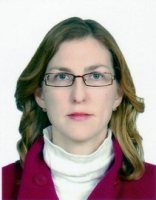
Jocelyn Wright, associate professor at Mokpo National University, started the Gwangju-Jeonnam Reflective Practice group in 2013. Since then, she has been facilitating and coordinating meetings. Inspired by the talented people she meets and in search of novel ways to reflect on practice, she is delighted to team up with Lisa to experiment with principles of design.
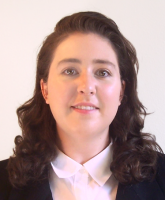
Lisa Casaus is an artist from Albuquerque, New Mexico, with a special love for illustrative and narrative art forms. She is especially interested in how storytelling, visual and otherwise, motivates learning. Lisa is currently combining her love of learning and art by teaching English and volunteering as an instructor of community art classes.
[To Top]
__________________________
13:10ㅡ13:50 OPENING PLENARY SESSION
As Time Goes By: The ELT Questions We Revisit
Stewart Gray (Hankuk University of Foreign Studies)
In the spirit of the conference theme, this plenary session will be dedicated to reconsidering some important English language teaching questions that many teachers find themselves coming back to again and again over time.
What role should L1 have in my classroom? How can I make activities fun and engaging but also worthwhile? What is my teacher talking time like, and what does it say about the relationships in my classroom?
These are questions EFL teachers are sure to ask themselves time and again over their professional lives. As our experience broadens, we develop a sense of how to answer these questions for ourselves. Our philosophies grow, evolve, deepen. With this in mind, it is often a good idea to consciously give some space and thought to these questions. By doing so, we can reflect not just on what we believe now but also on how we got here and where we might go next.
In this session, we will be asking and answering questions connected to three common issues in English language teaching: students’ L1 use, games for language practice, and student- vs. teacher-centered classes. Attendees will be invited to reflect on their own beliefs and practices. Meanwhile, the presenter will offer up some of his own experiences with a smattering of theory as a contribution in the hope of casting new light on some familiar issues.
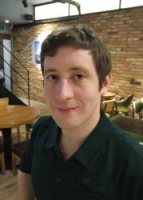
Stewart Gray teaches English at Hankuk University of Foreign Studies and is undertaking a PhD through the University of Leeds. He also has experience as a teacher trainer and speaking test examiner. He has served for several years as Yongin KOTESOL Chapter president and also KOTESOL Reflective Practice Special Interest Group co-facilitator. Stewart has conducted several research projects focused on the Korean EFL classroom and on teacher identities, and is particularly interested in language and identity, creativity in EFL classes, critical pedagogies, and reflective practice.
[To Top]
__________________________
SPOTLIGHT Strand
14:00ㅡ14:45
Revisiting Old EFL Classroom Practices with New Teacher Trainer Eyes
ㅡ Kristy Dolson
Armed with a teaching certificate from Ontario and five years fostering a dynamic and engaging learning atmosphere as a native English teacher (NET) in Hwasun Elementary School, I thought my teaching practices were beyond reproach. But after I took a position instructing Korean English teachers on the finer points of microteaching at the Jeollanamdo Education Training Institute, I realized that I had only just begun to take the first steps of my teaching journey. This prompted me to spend the last two and a half years carefully scrutinizing and redefining all of my classroom practices to bring them more in line with both EFL research findings and my teaching philosophy and professional goals. In this presentation geared towards primary and secondary EFL teachers, both public and private, I will first outline my teaching philosophy and goals before revisiting those inefficient practices that dominated my early lessons. By the end of this presentation, participants will not only have a better awareness of the flaws inherent in these common practices, but they will also leave with tried and tested alternatives to improve their lesson planning process and increase the overall engagement of their students. Particular focus will be given to microskills, including questioning strategies, minimizing teacher talk, planning effective instructions, and choosing appropriate activities for EFL learners.
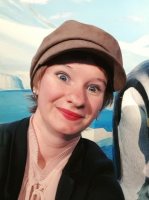
Kristy Dolson, as a teacher trainer at the Jeollanamdo International Education Institute, is mainly responsible for instructing and inspiring Korean primary and secondary public school teachers. She focuses on pronunciation skills, to improve her trainees’ comprehensibility, and microteaching, to improve their teaching skills and strategies. At the JIEI, she also teaches workshops for other school personnel, and middle and primary student camps, and she is highly involved with the annual JLP orientations and renewal meetings.
[To Top]
_________________________
15:00ㅡ15:45
Memoir Making Materials
ㅡ Maria Lisak
Whether looking for prompts for your students, your teaching practice, or your research project, this workshop is a space for inspiration, documentation, and celebration. Using ethnographic writing and performance prompts, participants develop multimodal, embodied artifacts that are fun and memorable.
This workshop will start with a nature walk, then a return to the classroom to experience a portfolio of activities that you can use with your own students. Paper and writing implements will be available, but bring your smartphone to capture audio and video, too.
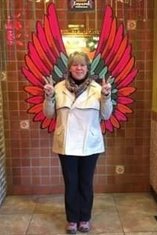
Maria Lisak just celebrated her 24th year in South Korea. This year is also her 35th anniversary from graduating from high school. Since then, she's never left learning! Flight school, philosophy, economics, business, teaching English, educational technology, reiki, mediation, reflexology, Swedish massage, and now literacy, culture, and language education. Maria is a lifetime KOTESOL member who loves reflective practice, and material-making for classroom adventures.
[To Top]
_________________________
16:15ㅡ17:00
Charisma: Developing Personal Magnetism Among Classrooms and Coworkers
ㅡ Ian Schneider
Many people bandy about the term charisma. We see charismatic people as likable, powerful, and magnetic. We view charismatic people as great leaders - leaders of classrooms, heads professional organizations, or captains of teams.
But what is charisma exactly? Many think of charisma as an inborn ‘it factor’. One is either effortlessly charismatic or stuck coping with awkwardness and anxiety. You’re either charismatic or you’re not. But Olivia Fox Cabane, author of The Charisma Myth, argues otherwise.
Drawing from principles of cognitive-behavioral therapy and social psychology, Cabane puts forth a compelling case that charisma is not an inborn personality trait, but rather a set of characteristics consisting of learnable habits - habits that one can develop through effort and deliberate practice. Specifically, charisma consists of three pillars: presence, power, and warmth.
What habits can we practice today to increase our charisma? How can we adopt internal mindstates that radiate power and warmth in our day-to-day interactions? How can these practices benefit our students and our workplace interactions?
Teachers are leaders. We must lead our classrooms and lead by example in our communities. By practicing and adopting charismatic habits, we can build warmer, more trusting relationships with our students, manage our classrooms with graceful presence, and engender harmony with our coworkers while preserving the courage to defend and live true to our core values. “Charismatic people impact the world, whether they’re starting new projects, new companies, or new empires” (Cabane, 2012).
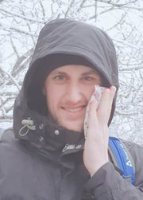
Ian Schneider is a native instructor at the Jeollanamdo International Education Institute where he specializes in listening and speaking skills and methodology. He was also a native English teacher at Namak High School from 2017 to 2019. He holds a BA in linguistics from the University of Kentucky and a TEFL certificate from the University of Toronto.
[To Top]
__________________________
TEACHING PRACTICE Strand
14:00ㅡ14:45
Helping Students Deliver Impactful Presentations Through Proper Design Principles
Jeffrey Baldwin & Natasha Powell
The ability to deliver a powerful and impactful presentation in a second language is a skill that has become necessary for most university students. From completing assignments in undergraduate classes to presenting research as graduate students at international conferences, and even delivering business proposals in professional settings, digital presentation skills are requisite for modern students. Unfortunately, many instructors may be uncomfortable teaching presentation skills and avoid using them in their courses. This interactive workshop will be built around three distinct steps to ensure that instructors have the background knowledge and confidence to utilize digital presentations successfully in their classrooms.
First, we will go over some general rules to follow when building a presentation that will be beneficial to students but can also be applied to instructors who want to improve the presentations they build in class. Everyone has sat through a boring or unprofessional PowerPoint presentation. This session will show you how to avoid common mistakes when designing presentations and help you relay this information to your students.
Second, we will go over basic design principles, looking at both negative and positive examples, and discuss how both students and instructors can ensure their presentations are visually appealing to their audience as well as impactful and supportive of their overall topic.
Finally, we will discuss and give ideas as to how you can design projects that focus on your students creating and delivering presentations in class, and the many benefits these projects can have for your students.
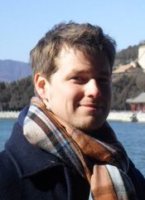
Jeff Baldwin is currently an instructor at the Gwangju Institute of Science and Technology. His research interests include academic discourse, academic presentation skills, and corrective feedback . In his free time, he enjoys unsuccessful attempts to train his dog Oscar.
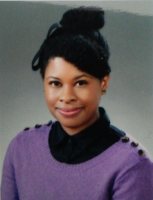
Natasha Powell instructs students at the Gwangju Institute of Science and Technology. She has a background and constant interest in design and the design process. As a language instructor for nearly a decade, she has been merging her interests to find ways to enhance education through the design thinking process.
[To Top]
_________________________
15:00ㅡ15:45
Re-evaluating Student Interest and Managing a Classroom
ㅡ Miranda Niezen & Olivia Laurel
Re-evaluating student interest is key to managing a classroom. In this presentation, we will discuss how best to maintain a working English language classroom free of prejudice while minimizing distractions and holding onto the role as an authority figure. We will also discuss having a high level of cultural awareness and go over a variety of activities to use within the classroom, such as group work, games, videos, and partner activities. How should instructors revise and restructure their classrooms for their students’ needs? How can you know the needs of your students? Let’s delve into these inquiries and also look at delivery styles to find out which kinds of delivery styles are effective for various groups. We will also be discussing the methods an instructor can use to collect feedback from his or her students, whether written, verbal, or non-verbal. In this session, we will be discussing these and more points relating to classroom management and focus on re-evaluating student interest in the English language classroom. There will be an opportunity for participants to break into small groups and have structured discussions with one another at the end of the session. This will be followed up with a time of Q&A for the whole group.
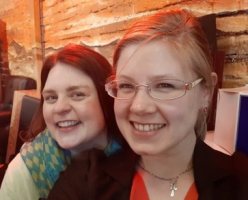
Miranda Niezen (right) has worked in the ESL field for over seven years. She has previously worked at Mokpo National University where she taught English for five years and is currently teaching a variety of English courses at Gwangju University as an assistant professor. In her free time, she enjoys reading, running, and drinking coffee.
Olivia Laurel has been teaching in Korea for 10 years in various school systems ranging from kindergarten to university age levels. She is now located at Gwangju University as an assistant professor. Along with a passion for education, she loves to create art using a variety of mediums.
[To Top]
_________________________
16:15ㅡ17:00
Using Roots, Lexical Fields, and Semantic Patterns for Vocabulary Learning
ㅡ David Cedric Bennette
With the advent of electronic and smartphone dictionaries, language learners are often prone to entering unknown words into their dictionaries without any prior analysis of the morphological and semantic dimensions of the word. As this prior analysis of the word is the crucial first step in integrating the word’s meaning into the learner’s memory, it becomes important for learners to develop integrative, analytic strategies when encountering new words, and to learn how to connect them into lexical fields as a memory aid. Without these steps, a vitally important step in vocabulary learning is lost.
This presentation, while re-enacting real classroom situations, shows how students can analyze the various internal components of a word and then map these components out into larger lexical fields before using a dictionary in the search for meaning and lexical acquisition. Then building on some of the insights of the Woosong Joint Research Project, similarities and differences with Korean morphology are brought into focus for discussion with the aim of finding fruitful paths for English vocabulary acquisition by Korean students.
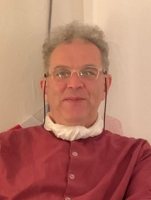
David Cedric Bennette has taught in universities in South Africa, France, Taiwan, and Turkey and is currently working at Woosong University. He holds a double master’s in language science and literary translation and a DEA with distinction in modern literature. He has presented widely at international conferences, including the annual IATEFL EAP SIG conference and the annual MLA conference. In his free time, he likes to study Korean and hang out with his cats.
[To Top]
_________________________
PLANNING AND BEYOND Strand
14:00ㅡ14:45
Filling in the Gaps with Technology: Converting Your Lessons into E-learning in Response to Reduced Class Time
ㅡ Paulina Martinez
Some instructional contexts, especially at the university level, deal with limited contact hours in comparison to the intended scope of the course or may face frequent class cancellations and student absences. Instructors often need to catch up with certain students individually, or they may opt to sacrifice class discussion/student speaking time in order to accommodate missed lecture material due to class cancellation. One proposed solution is to make use of multimodality in digital technology to promote a moderately flipped classroom in which lecture content is made available to students prior to course meeting times, while in-person class time is devoted to interpersonal activities for checking understanding and practicing concepts.
This session introduces tools and ideas for translating your lessons into multimodal e-learning material using video, audio, screen recording with voiceover, interactive buttons, quizzes, e-book, simulated role-play, and more. Demonstrated methods include features native to PowerPoint ($), as well as add-ons to PowerPoint available with iSpringSuite ($$$) or its competitors. Whether it’s for current application in your tightly scheduled classes or for longer-term career development, it’s a good idea to become more familiar with course authoring tools in the growing field of e-learning.

Paulina Martinez earned her MA in applied linguistics with a certificate in TESOL from Biola University and her BA in Spanish and sociology from Texas A&M University. She is currently teaching writing at Gwangju Institute of Science and Technology in. Martinez has also taught English at Pyongyang University of Science and Technology (2016) in North Korea. Her research interests include vocabulary and multi-word unit acquisition.
[To Top]
_________________________
15:00ㅡ15:45
Make It So! Going Online at Handong Global University
Bryan Alkema & Judith Alkema
Life in South Korea is based on digital and virtual technology. From banking to personal conversations to ordering coffee, everything is done online. What does this mean for education? This presentation is a description of how grammar and writing are being re-conceived as a set of digital resources to allow students greater opportunity to review, reinforce and expand their skills in these areas. At this point, we are using these resources to supplement rather than replace what happens inside the classroom. Components of this presentation will include brief descriptions of what was done, what is being done now, and what we hope to do in the future; a quick overview of the website we are using; and a discussion of why and how we are going online. Attendees will gain some basic principles of how online education differs from traditional classroom structures, reinforced by practical examples drawn from our own experience. This presentation is a work in progress and should be seen as the first step in a longer journey!
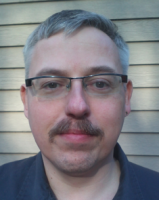
Bryan Alkema has taught both EFL and ESL to students of all ages and skill levels, in contexts ranging from North America to the Middle East and Asia. He earned a master’s degree in applied linguistics from the University of Southern Queensland and has given several presentations at KOTESOL chapter meetings and conferences, as well as in Oman. He teaches English classes at Handong Global University (HGU) in Pohang, and he also serves as the head of the university’s EAP section. Bryan has also taught TESOL courses at HGU.
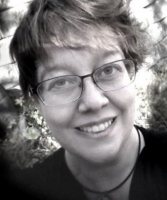
Judith Alkema has been active in ESL, EFL, ESP, and curriculum design since moving to South Korea in 1996, and has written and designed a number of in-house textbooks, including both university and elementary level. She currently teaches Contents Convergence Design at the EAP level at Handong Global University. Her graphic design solopreneurship gives her experience in the relevant fields, and her years of running art, craft, and cultural experience programs in both Korea and Canada help to support her practical, engaging, and results-oriented workshops.
[To Top]
_________________________
16:15ㅡ17:00
Redefining Homework: Finding Self-Study Solutions
ㅡ Jessica Magnusson
Most students don’t like doing homework. The word homework often conjures images of doing tedious busywork. Students often rush through homework so that they can move on to the things that they really want to do. Teachers often give rewards for “finishing homework.” However, what if homework became a reward onto itself? By finding self-study solutions, language learners can become more proactive in meeting their own language learning goals. They can also become more aware of their progress.
Learning a language is a monumental task with thousands of things to remember (words, expressions, nuances, sentence patterns, spellings, pronunciation, rules, rule-breakers, etc.) The cycle of learning and forgetting, and more learning and forgetting can be extremely demotivating. Self-study strengthens memory and therefore can be quite beneficial to language learners. However, self-study can also be boring, lonely, and frustrating. What can be done about this?
This presentation will focus on finding the right self-study solutions to motivate language learners. Spaced repetition (the process of regular review over time) and human memory will be discussed. Participants will have opportunities to talk about their own experiences with homework, self-study, learning, and forgetting. Websites and apps geared towards self-study such as Memrise, Quizlet, and Anki will be examined and compared. Other tools for language self-study, such as LCD writing boards, will also be demonstrated.
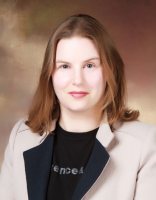
Jessica Magnusson earned a master’s degree in TESOL from the School for International Training (SIT) in Vermont, USA. She has been teaching and designing English conversation courses, teacher training courses, and special programs at Gwangju National University of Education since 2011. In addition, she has experience teaching elementary and middle school students in hagwons and English camps.
[To Top]
_________________________
DISCUSSION Strand
14:00ㅡ14:45
Motivation in the EFL Classroom
ㅡ Brian Raisbeck
Motivation is one of the most important driving forces in the EFL classroom. Without it, very little language learning can occur. During this informative workshop, participants will discuss what motivation is and how it is used in their classroom, explore the subtle nuances of both intrinsic and extrinsic motivation, learn about the drivers behind what motivates their own students, and learn about the role that L2 motivation plays in the EFL classroom.
This workshop will include small group discussions on the role that motivation plays in participants’ current teaching practices and be intertwined with important L2 motivational research findings and the implications for EFL instructors. The workshop will also include further dialogue on how participants can apply research findings to their existing classroom and will conclude with a reflection on the lessons learned from the facilitator and fellow participants during the 45-minute session.
Brian Raisbeck has taught EFL in Korea for nearly a decade. He holds a BA in history from the University of California at Santa Cruz, an MAT in TESOL from the University of Southern California, and an MSc in applied linguistics and second language acquisition from the University of Oxford. He is also the current facilitator for the Reflective Practice Special Interest Group in Seoul.
[To Top]
_________________________
15:00ㅡ15:45
Native and Non-native Speaker Attitudes in Korea
ㅡ Emily Balamut
Korean English education is based on the Standard American variety of English due to the intertwining history of the two countries. The Korean government, through the curriculum has stated that one of its main goals is to create globally minded citizens, but research has shown that Korean English speakers struggle to communicate competently with native speakers and oftentimes experience communication breakdown with non-native English speakers due to lack of comprehensibility of the non-native variety. Korean English speakers are most comfortable and confident with understanding and using Standard American English. In the neoliberal economy, how is it that Korea has failed to adopt a more globally conscious understanding of what it means to speak “English as a global language”? Why is it that the policy writers have not taken into account the fact that Koreans do most of their interacting with non-native English speakers (say, from China or Singapore) when designing syllabus and textbook materials? Does the strict adherence to the native speaker help or hinder our Korean learners? Is it best to teach a variety of Englishes to better prepare our learners for what they will experience in the real world? Or should we stick to Standard American or other native-speaker varieties since large-scale testing still uses those forms? These are a few of the questions we will be discussing during this hangout.
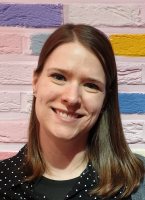
Emily Balamut is a guest English teacher in Ulsan, who is completing her master’s degree in English language teaching and applied linguistics at the University of Southampton in England. She is developing ideas for a dissertation topic and native speakerism in Korea is an area of interest. She has a TEFL certificate from Oxford Seminars and a bachelor of arts degree in English literature. She has taught in South Korea for 3.5 years as both a middle and elementary school teacher and is a member of the Busan-Gyeongnam KOTESOL Chapter.
[To Top]
_________________________
16:15ㅡ17:00
Why Do(...n’t?) Foreign English Teachers Learn Korean? A Discussion/Presentation on Motivation
ㅡ Stewart Gray
Ask foreign English teachers in Korea about their Korean ability and you are certain to hear this from someone before long: “My Korean should be better (by now).” Keep asking around, and you may notice that teachers whose Korean seems quite good will still say this. But what does it mean to say it should be better? Better for what? What drives foreign teachers to learn Korean? And why do some teachers end up going so much further in their learning than others? This session will offer some answers to these questions for the benefit of those interested in language learning motivation, learner identity, or indeed, the foreign English teacher experience in general.
The presenter, a formerly committed learner of Korean, will outline the initial results of his ongoing narrative research project on the language learning experiences of ten foreign English teachers. He will show how these teachers narrated their Korean learning motivation, and in doing so, he will relate their narrations to several current motivational theories. At issue will be the relevance to motivation of factors such as self-identification as an immigrant, language learning aptitude, social and romantic connections in Korea, beliefs about language teaching, and formal and informal Korean learning experiences.
This discussion session will be of interest to those who wonder why some language learners ultimately achieve greater competence than others. It should also be informative to foreign English teachers who, like the presenter, are curious about the experiences of others in a similar position to themselves.

Stewart Gray teaches English at Hankuk University of Foreign Studies while studying part-time for his PhD through the University of Leeds. He struggled his way up to Level 6 on the TOPIK years back, but at this point, his Korean could definitely be better. He studies language and identity, and would also love to chat about creativity in EFL classes, critical pedagogies, and reflective practice.
[To Top]
_________________________
17:15ㅡ18:00 CLOSING PLENARY SESSION
Reaching Takeoff: Repitition, Criticality, and Emergence
ㅡ Scott Thornbury, Thomas S.C. Farrell, Diane Larsen-Freeman, Margaret Wheatley
This is a highly interactive session featuring four short videoclips, one by each of the four speakers. Each videoclip treats a different topic intended to stimulate discussion or find solutions to a problem.
[To Top]
_______________________________________________
[15:45ㅡ16:15] POSTER SESSIONS (Lobby)
A Contrastive Study on Onomatopoeia Between Korean and Uzbek
ㅡ Dilfuza Guzarova
This study aims to help Uzbek speakers, who would like to learn Korean language, for a better understanding of Korean onomatopoeia. The study is based on comparing and analyzing the differences of onomatopoeia's usage in Korean and Uzbek languages. The understanding of onomatopoeia is the most difficult area for many Korean language learners, especially for Uzbek speakers who have the same language structure but different pronunciation structure. In addition to this, it should be noted that students lack proper study materials and well-developed bilingual dictionaries to refer to while studying Korean onomatopoeias. Viewed in this light, in this study we contrast and analyze the onomatopoeia concept in Korean and Uzbek languages and examine them together. While comparing onomatopoeia usage in Korean and Uzbek languages, Korean has a much broader onomatopoeia in comparison to Uzbek. The main reason for this is a different phonological system and structure. Since there are many phonological, morphological and syntactic differences between these two languages, Uzbek speakers experience serious difficulties in learning Korean. Therefore this research will be helpful not only for Uzbek speakers who learn Korean onomatopoeia, but also Korean learners who would like to study Uzbek.
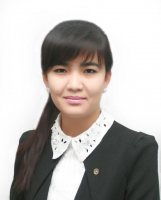
Dilfuza Guzarova is a master’s degree student at Gyeongsang National University, in the Department of Korean Language and Literature. She is from Uzbekistan, and although she is now studying teaching Korean as a foreign language, her undergraduate focus was English language teaching. She loves teaching, and her life and career are dedicated to language teaching. She is interested in new pedagogical technologies and useful tips for foreign language teaching.
[To Top]
_________________________
KONA Storybook Center
ㅡ Kim Young-Im & Matkhiya Usmonova
KONA Storybook Center (KSC) is a registered non-profit research center for English reading education. It supports UNESCO KONA Volunteers (UKV). UKV is a non-profit registered organization that helps disadvantaged children to learn English independently through storybooks and story-maps. We guide the family and children to develop a love of reading storybooks in English. We also give guidance to volunteers in using storybooks. We are looking for long-term volunteers who desire to enrich their lives. We are asking volunteers to commit to helping at least once a month.
The days for KONA volunteering and the facilities are as follows:
1. KONA Storybook Center: Every Saturday, 2–4 pm
2. Children's English Library: 2nd Saturday, 2–4 pm
3. Gwangju Children’s Home: 4th Saturday 2–4 pm
For more information, please visit http://cafe.daum.net/konavolunteers or our Facebook pages for KONA Storybook Center and UNESCO KONA Volunteers. Also you can contact Kim Young-Im at 062-434-9887, or email konacenter@gmail.com.
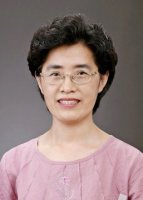
Kim Young-Im currently runs the KONA English Center, the KONA Storybook Center, and the UNESCO KONA Volunteers. She holds an MA in TEFL from the University of Reading in the UK and completed her doctoral course in English literature at Chonnam National University. Her research interests include extensive reading as well as intensive reading through storyboards, story-maps, and book reports; and volunteering. Email: konacenter@gmail.com

Matkhiya Usmonova is from the Republic of Uzbekistan. Presently, she is a student at Chonnam National University, majoring in English Language and Literature. Except for her studies she does volunteering programs at the KONA Storybook Center, Gwangju Children’s Home, UNESCO and Gwangju News Magazine. She habitually strives to improve herself personally and educationally and tries to learn from her own mistakes.
[To Top]
_________________________
The Good, the Bad, and the Vocab: A Poster Presentation Tryptic
ㅡ Julian Warmington
This poster presentation about the climate crisis and English language teaching highlights the good news in the latest technological developments, the bad news coming from the latest scientific observations in the field, including ideas about how we might prepare our schools as community-based disaster relief and readiness centers, and the latest developments in local ELT for teaching the lexis of environmental issues. Some of the most recently and locally relevant vocabulary includes “mitigation,” “adaptation,” “resilience,” “hockey stick graph,” and “snails.”
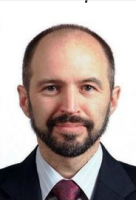
Julian Warmington has been teaching at the university level in South Korea for more than ten years. He has been researching on the state of environmental education in English language education for several years, presenting on it for the last few years, and established the KOTESOL Environmental Justice SIG in 2018.
[To Top]
![]()



